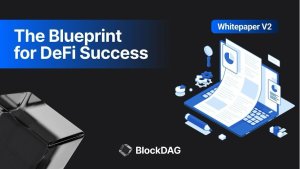Gamification of Trading: Experts weigh in as Warren Buffett throws another punch at Robinhood
Whether it is because of the bursts of digital confetti, issues with the asymmetry of information flows or best execution, many industry experts feel that we’ve all been down this road too many times.

A few weeks ago, Berkshire Hathaway’s Charlie Munger had very harsh words to throw against Robinhood, a powerhouse of what is now called the gamification of trading.
“It’s most egregious in the momentum trading by novice investors lured in by new types of brokerage operation like Robinhood and I think all of this activity is regrettable”, said Mr. Munger at the Los Angeles-based Daily Journal annual shareholders meeting.
“No one should believe Robinhood trades are free […] The frenzy is fed by people who are getting commissions and other revenues out of this new bunch of gamblers […] There are threats of clearinghouse failure, so it gets very dangerous. And it’s really stupid to have a culture that encourages as much gambling in stocks by people who have the mindset of racetrack betters […] It’s a dirty way of making money.”
On Monday, Warren Buffett doubled down on the rhetoric. Speaking at the conglomerate’s annual shareholder meeting, he said Robinhood has “become a very significant part of the casino aspect of the casino group that has joined into the stock market in the last year or year and a half.”
Mr. Buffett added that it “would be interesting to watch” how Robinhood describes its source of income in the S-1, given the broker’s business model of commission-free trading.
A Robinhood spokesperson said the broker is “not going to sit back while they disparage everyday people for taking control of their financial lives” as Robinhood is “proud” for making “investing simpler and more accessible to more people.”
The communications exec asserted that Robinhood and other no-fee platforms “have opened the doors of financial markets to everyday people, deeply unsettling the old guard who will fight to keep things the same.”
“At Robinhood, people now don’t need thousands of dollars to begin investing. We pioneered commission-free trading, and fractional shares make it possible for people with less money to invest in a piece of a stock […] In fact, we see that a majority of Robinhood’s customers are buying and holding”.
Robinhood has been taking the blows as industry experts point out the dangers of such business model, while others highlight how it is democratizing access to the financial markets. But what is “gamification of trading”?
Although there is little consensus, a host of features tend to be present in trading apps that gamify investing: vivid colors, free stock for new accounts, instantly available funds, social-media-style feeds, bonuses, and hosting contests for referrals, “push notifications” to app users; and digital effects such as digital confetti.
Regulators are increasing scrutiny, with FINRA identifying “digital platforms with interactive and game-like features” as presenting “emerging digital communications risks” and lists of a host of regulatory requirements that may be applicable.
Industry experts weigh the pros and cons
Many within the industry, however, don’t see the adjectives “fun” or “easy” as a threat to investors’ wealth. On the contrary, it can be seen as part of the evolution of the trading experience. FinanceFeeds spoke to a few industry experts to ascertain their view on the matter.
“I do think that the gamification of trading is a dangerous thing”, said Natalia Zakharova, Head of Business Development at FXOpen. “Although appealing to the brokers and market makers as it caters to a much wider audience and gives them access to a bigger market, it can be potentially harmful to the industry. Depicting investing as a game and a social activity makes it look harmless and draws attention away from the risks involved.
“So investors with insufficient experience and knowledge start investing, losing money, complaining to the regulators, and consequently the regulators turn on brokers – so it is just a lose-lose situation in the end. Something similar happened to the retail forex industry 20 years ago where forex was presented to the traders as a game and a quick way of making money.”
David Belle, UK Growth Director at TradingView, applauded the empowerment of ordinary people, but pointed to the pitfalls: retail flow has become important to Wall Street (not the City, since payment for order flow is banned in the UK and EU).
“The informational advantages provided to those market-making that come from retail flow is broad. The democratization element comes with follies. There is more nonsense out there than ever, which is good for a B-book broker since clients are likely to lose faster and with larger amounts, thanks to leverage restrictions where they’ll hold more capital on account rather than using leverage.
In regard to gamification of investing as entertainment, Mr. Belle, has no doubt that it is bad news, especially when leverage and complex products such as options come into play.
“I checked out Robinhood’s main page and couldn’t believe how gamified the app is. Quite frankly, it’s dangerous and disingenuous in my view, to believe that this is democratizing finance when it can put people at more peril than benefit. Survivorship bias is massive, and I think we have heard more about the epic wins from small traders over the past quarter than we have heard of the losses.”
Natallia Hunik, Chief Revenue Officer at Advanced Markets, pointed to major deficiencies in the “payment for order flow” model.
“It is very similar to the social dilemma: do we want the likes of TikTok, Facebook, and other big tech selling our data or would we rather help pay for the huge cost to keep these platforms operating? While we enjoy not having to pay to use these services, we don’t necessarily enjoy the unsolicited ads or the big tech filtering or altering, our news feed based on their own set agenda.
“Similarly, some firms grow their businesses by targeting unsophisticated investors and by removing value from core services (last- looking trades, assigning priority to a specific broker or selling trade data), and yet seem to be able to market this to their customers as somehow being good for them.”
Retail trade flow is the most valuable flow in the world, and there is a reason for that”, Ms. Hunik continued. “Should the amateurs be concerned? I think that we all should be, just like we all should be concerned about the long term consequences of the big tech firms selling our personal data as the agenda that these companies might be pursuing could, in fact, be hurting us as individuals and as a society as a whole.”
Whether it is because of the bursts of digital confetti, issues with the asymmetry of information flows or best execution, many industry experts feel that we’ve all been down this road too many times.
A road that leads to bad publicity for the trading industry, new regulations, and more costs with compliance.









